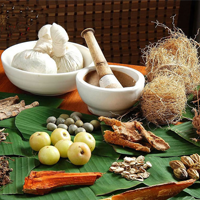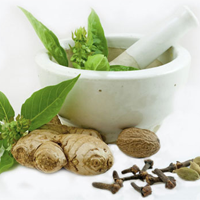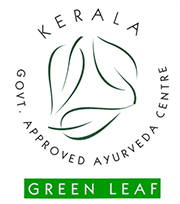AYUSH and WHO to promote Ayurveda
The historic agreement between AYUSH and WHO to promote and streamline Ayurvedic Treatments and Practices:
Recently, India and the WHO, the World Health Organization, signed a historic Project Collaboration Agreement, PCA for a complete collaboration and cooperation on promoting, quality, safety, and effectiveness of service provisions in traditional and complementary medicines like Ayurveda, Yoga, Unani, Sidda, and Panchakarma.
The agreement was entered into between the WHO officials and the AYUSH Ministry, Government of India in the WHO, World Headquarters in Geneva. The agreement was signed specifically by the Secretary, AYUSH Ministry, Mr. Ajit M Sharan and the WHO, Assistant Director General, Health Systems and Innovations, Dr. Marie Kieny, in Geneva on May 13th 2016.The landmark agreement was entered into, in the presence of the AYUSH Minister, Mr. Shripad Yesso Naik and the Director-General, WHO, Dr. Margaret Chan.
The said milestone agreement is for a period of 5 years from 2016 to 2020. As per the agreement, WHO will issue standardization, benchmark documents for Yoga training practices, and also WHO defined benchmarks for Ayurveda, Unani and Panchakarma practices, treatments and therapies. And in a way, this would contribute significantly to the strengthening of national capacities in ensuring the quality, safety, and effectiveness of traditional medicine including establishing regulatory frameworks for traditional medicine products and practice and encourage their incorporation into national healthcare systems and practices.
How did the PCA agreement come about?
How did this come about? How did the UN endorse such a move? This happened in the backdrop of the Indian Prime Minister, Narendra Modi time after time talking about the greater good natural Indian medicine systems and practices like Ayurveda and Yoga can do for people and to put this knowledge to a greater use, so it has a wider reach globally. And as a first move, The UNO declared, June 21st as the International Day of Yoga in 2015.
And this agreement is also based on a 2014 WHO resolution that was started by China and backed by India. It was known as WHO Traditional and Complementary Medicine Strategy: 2014-2023. The resolution intends to help all Member states to grow their knowledge, encourage universal health reach by combining T&CM into national health guidelines, standardize products, practices, and practitioners linked to these areas, among other goals. In a way, it is to back the initiatives carried out by the UN to neatly blend traditional, alternative forms of medicine with regular,conventional forms of medicine.
What is the PCA all about?
The PCA is titled as'Co-operation on promoting the quality, safety, and effectiveness of service provision in traditional and complementary medicine between WHO and AYUSH, India, 2016-2020'. It aims to support WHO in the development and implementation of the 'WHO Traditional and Complementary Medicine Strategy: 2014-2023' and will contribute to the global promotion of traditional Indian Systems of Medicine.
The PCA for the period 2016-2020 will deliver for the first time WHO benchmark documents for training in Yoga, and WHO benchmarks for practice in Ayurveda, Unani, and Panchakarma. These will contribute significantly to the strengthening of national capacities in ensuring the quality, safety, and effectiveness of traditional medicine including establishing regulatory frameworks for traditional medicine products and practice and promote their integration in national healthcare systems.
The PCA with WHO is in fact an acknowledgment of India's vast experience in the progress and growth of traditional medicine. This will help India's long-term alliance with the WHO in promoting and integrating the AYUSH systems of medicine globally. This includes adding Ayurveda and Unani in the International Classification of Diseases and the International Classification of Health interventions.
Additionally, the WHO has also setup an International Regulatory Cooperation for Herbal Medicines (IRCH) which is essentially a global network of regulatory establishments who are accountable for the global regulation of herbal medicines. And not to miss, this year, the IRCH meet is hosted by India in November, 2016.
What will the PCA guidelines do?
In India, the alternative healthcare system and practices is immensely growing and is widely accepted and practiced across the country. But there is no regulatory body or guidelines to be adhered to. With this move, and with the new standards set by the WHO in place, all of them will have to follow and incorporate this strictly. This is in a way to make it all the more effective, complete, holistic, and safer too. So that there are common parameters, guidelines which people world over can follow, adopt, and practice.
Once this is enforced all practitioners from Ayurveda, Yoga, Unani and Panchakarma will have to follow these set parameters and rules. It would more or less be on the lines of Good Manufacturing Practices that is prevalent for consumer goods and products and the same principle will be applied to the alternative healthcare system so that it can be globally promoted.
About AYUSH
It was in November 2014, that the department of AYUSH was recognized as a dedicated Ministry that focused only on traditional, alternative medicines. And accordingly, the Indian Government signed MOUs traditional medicine with 9 countries which included Nepal, Bangladesh, Hungary, Trinidad & Tobago, Malaysia, China, Mauritius, Mongolia, and Turkmenistan. And this was in addition to having dedicated Chairs for Ayurveda in the 4 countries of Thailand, Indonesia, Slovenia, and Russia.
How is AYUSH and India committed to this?
The AYUSH Minister, Mr. Shripad Yasso Naik has laid emphasis on the rich heritage, history and the prevalence of traditional medicine in India.
India's commitment to the PCA includes financial and technical support to WHO so as to draft and devise the standardization documents required for the traditional medical systems and practices like Ayurveda, Panchakarma, Unani, and Yoga. And as per this, the AYUSH Ministry, in its expanded form stands for the department for Ayurveda, Yoga, Unani, Siddha and Homoeopathy would earmark a US $0.97 million its equivalent of INR 6.45 crores to the WHO till the agreement period that runs up till December 2020.
In fact, the Department of AYUSH is basically already reorganizing and seeking quality processes in the alternative healthcare systems like Ayurveda and Yoga. Therefore, all Yoga teachers and experts have to get certified and this is issued by the QCI, Quality Council of India.
As per this, the initiative aims to promote authentic yoga as a preventive, rehabilitative, and health-promoting, drug-free therapy, and the certification would seal the knowledge and experience of the Yoga practitioners. Basically, it would help validate their talent and knowledge and this would help them a great deal, if they want to practice within or outside the country.
Therefore, the PCA agreement with WHO further emphasizes and seals this initiative and offers that much more recognition, helps govern and have set processes in place.
And recognizing and heralding this move, is the Ayurvedic healthcare resort, Ayuryogashram in Thrissur, Kerala who follows and implements absolute Ayurveda prescribed treatments and therapies and feel that such a move would only give Ayurveda a more global presence and recognition.



























